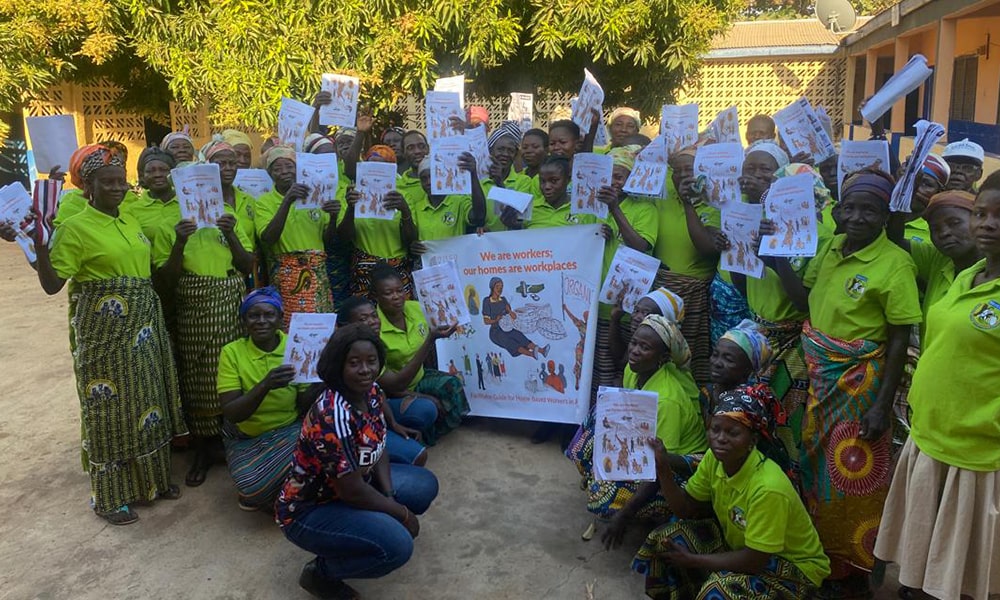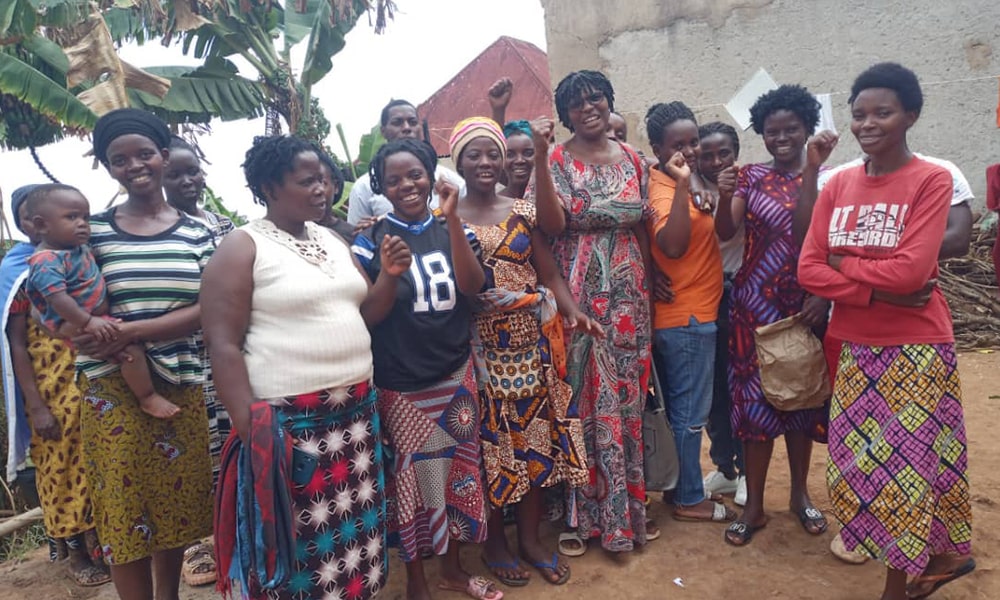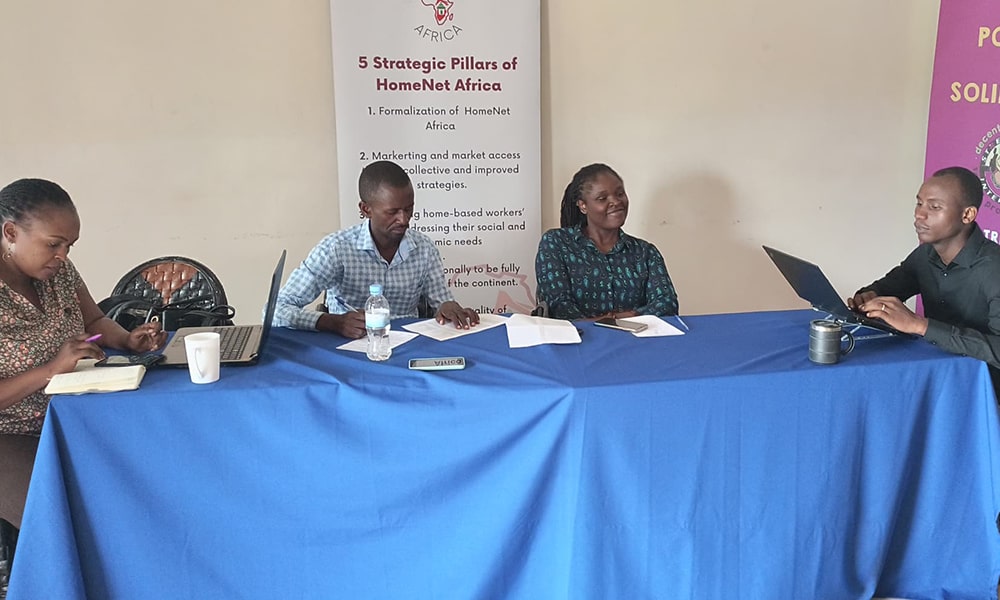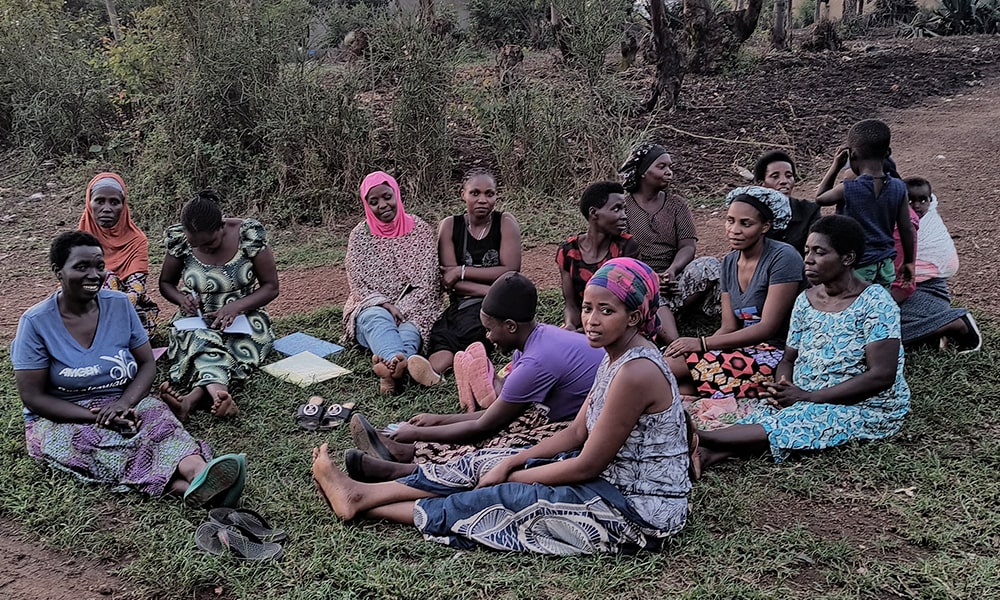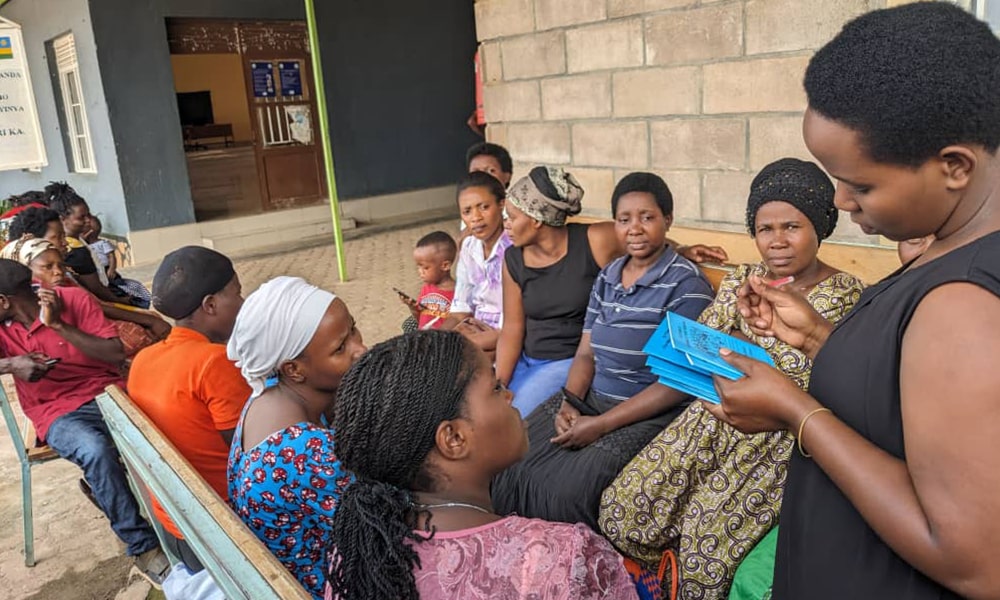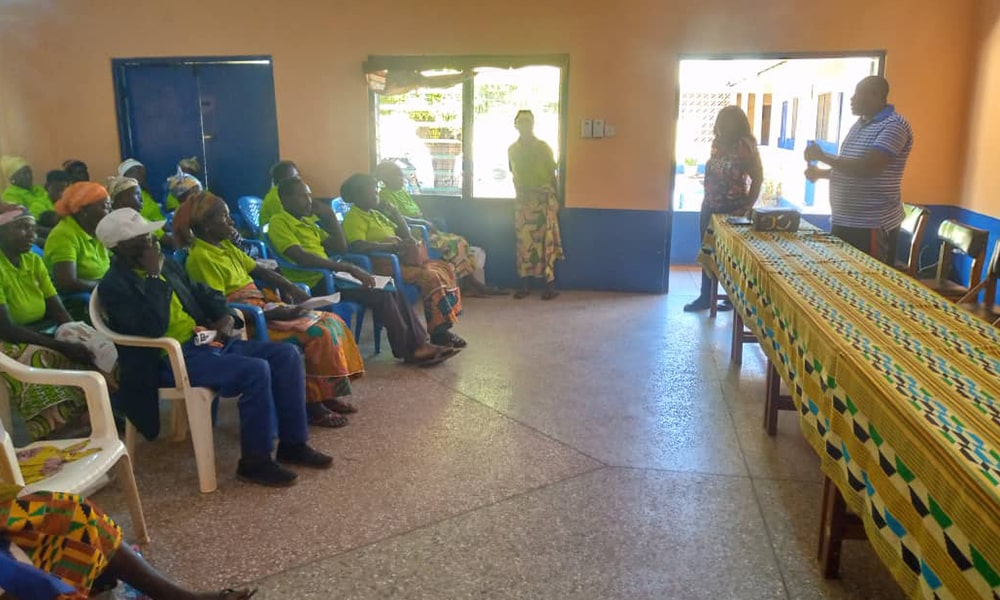By: Edwin Bett, HomeNet Africa Regional Coordinator
SYTRIECI Rwanda, a nationwide trade union representing informal workers, undertook the task of mapping and organizing home-based workers from its over 8,000 union members involved in various informal economic activities, including street vending, market trading, domestic work, waste collection, and home-based production. This initiative took place between September 19 and October 15, 2024, and aimed to identify, organize, and document home-based worker members, ultimately resulting in the formation of 20 distinct groups across 10 districts in Rwanda.
The exercise was guided by the following key objectives:
SYTRIECI Rwanda, a nationwide trade union representing informal workers, undertook the task of mapping and organizing home-based workers from its over 8,000 union members involved in various informal economic activities, including street vending, market trading, domestic work, waste collection, and home-based production. This initiative took place between September 19 and October 15, 2024, and aimed to identify, organize, and document home-based worker members, ultimately resulting in the formation of 20 distinct groups across 10 districts in Rwanda.
The exercise was guided by the following key objectives:
- Identification of Home-Based Workers: To gather comprehensive data regarding home-based workers within the membership.
- Group Formation: To organize workers into cohesive groups based on their geographical locations.
- Documentation: To maintain detailed records of findings and groups formed for future reference and support.
The mapping of home-based workers was captured as follows:
- City of Kigali: Gasabo District (Gatsata Sector, Jabana Sector, Kimironko, Kinyinya), Nyarugenge District (Kimisagara Sector, Muhima Sector), and Kicukiro District (Kigarama Sector, Gahanga Sector).
- Eastern Province: Rwamagana District and Nyagatare District.
- North Province: Musanze District.
- South Province: Kamonyi District, Muhanga District, and Huye District.
- *West Province:Rubavu District.
The mapping also involved the identification of leaders across various areas, resulting in the formation of 20 groups comprising between 13 and 30 individuals.
SYTRIECI Rwanda has identified opportunities that could further improve the organizing and mobilization of home-based workers as follows:
- Category-Based Meetings:Organize meetings for home-based workers based on their specific work categories to enhance targeted support and collaboration.
- Education and Outreach: Explain the mission, vision, goals, and activities of HomeNet networks, including HomeNet International and HomeNet Africa, highlighting the benefits of membership and workers’ rights.
- Capacity Building: Provide training and capacity-building opportunities for home-based workers when funds become available.
BBWCC's workshops on rights and solidarity in Ghana
The Bolga Baskets Weavers Cooperative Club (BBWCC) in Ghana is a women’s cooperative engaged in weaving baskets from straw or vetiver grass. Founded in 1995 as a group and registered as a cooperative in 2002, BBWCC conducted three workshops reaching out to 54 women leaders between November 19 and 21, 2024. These workshops focused on home-based work, helping participants understand their rights and how to build strong home-based worker groups.
The main objectives of the workshops were as follows:
The main objectives of the workshops were as follows:
- To enable women leaders to identify themselves as workers.
- To empower women leaders to educate their group members about the benefits of recognising themselves as workers.
- To initiate the process of organising Ghanaian home-based workers as affiliates of HomeNet Africa and HomeNet International.
The women leaders embraced the training materials entitled “HOME-BASED WORKERS, OUR HOME, OUR WORKPLACES,” translating it into their local dialect as “TUMA D3 TUNTUNEBA, TUMA YIR3 D3 T3 MA TUUMAZE,” and resolved to use this phrase throughout their Weaving Centres.


